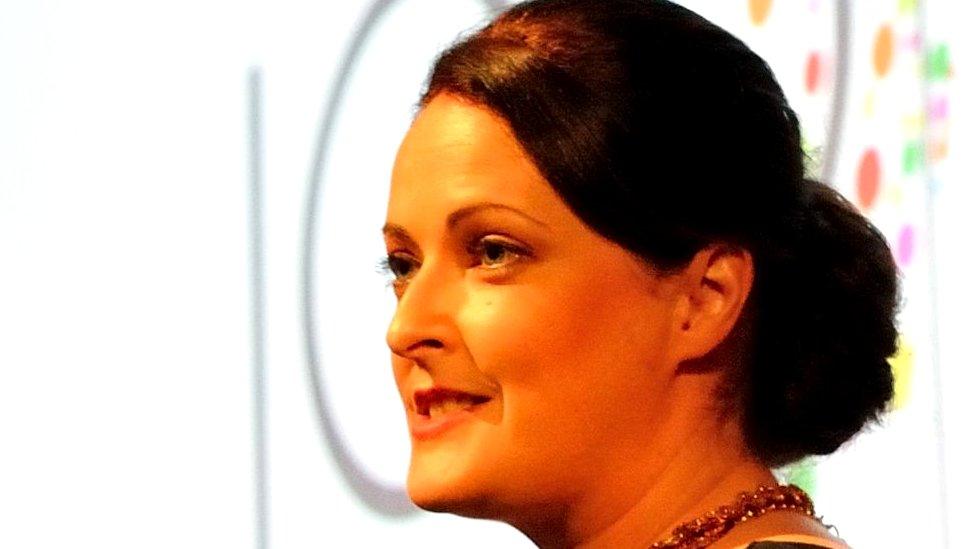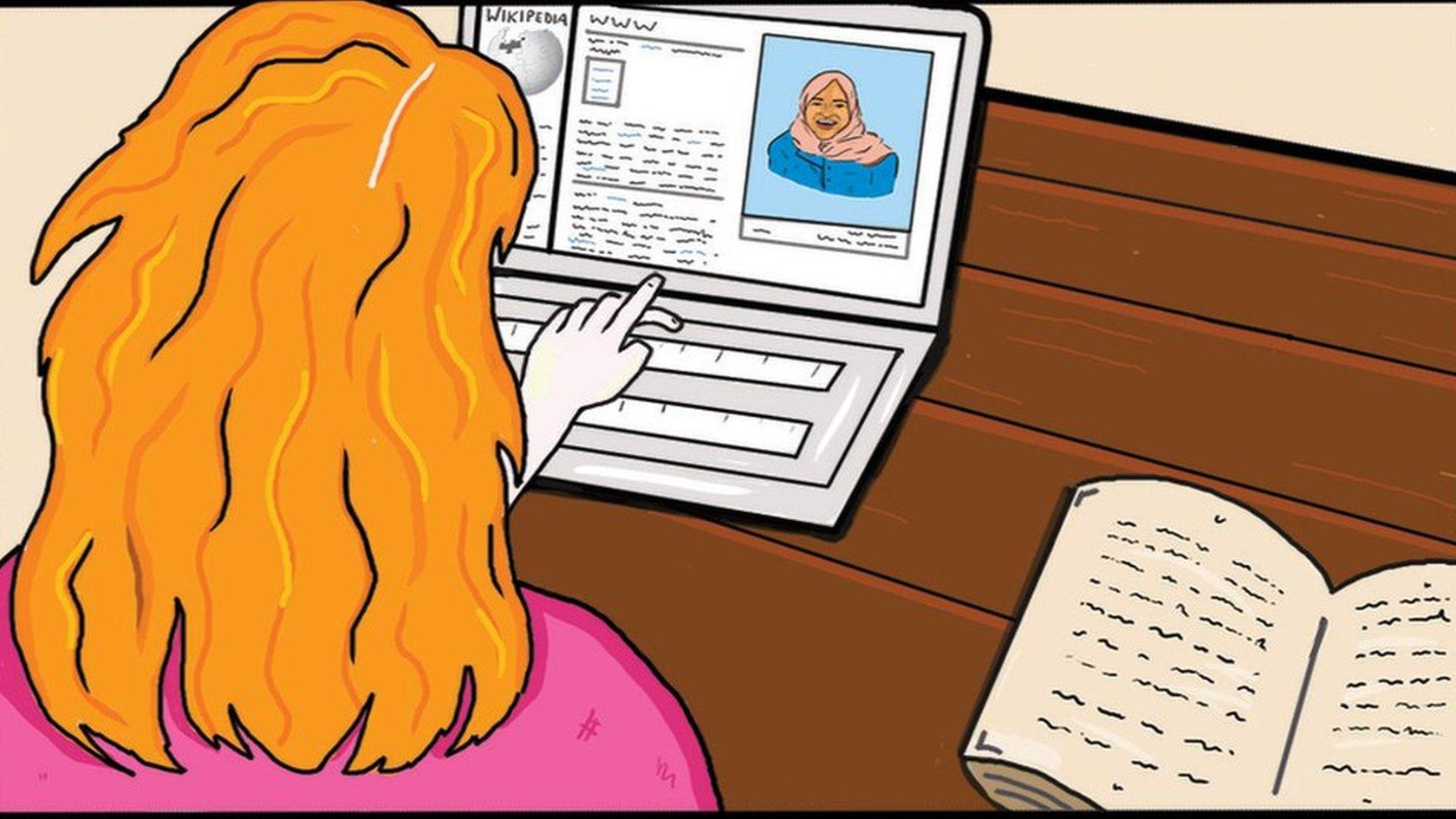100 Women 2016: Season finale breaks new territory
- Published

The finale of this year's BBC 100 Women season is on 8 December, and to mark the occasion, we're planning something the BBC has never done before.
For one day only we're joining forces with Wikipedia for a global edit-a-thon to try to increase the numbers of women profiled on the site.
We're calling it #100WomenWiki, and BBC journalists and audiences all over the world will be taking part.
The event is the culmination of the 100 Women season, which this year has put a lot of focus on social media, technology, and the issue of how women are represented both in the tech business and online.
As it happened:Women take over Wikipedia
100 women of 2016: the full list
In the course of our work this year we've uncovered some startling statistics.
In the developing world nearly 25% fewer women than men have access to the internet. Recent figures show women are 27 times more likely to be abused online.
And when it comes to research, we've discovered that although Wikipedia is one of the most popular websites in the world, only around 15% of its editors are women, and fewer than 17% of biographies are of women, according to the site.

Despite the fact that 100 Women has been running for four years now, half the women we've profiled still do not have a Wikipedia page.
We've decided to team up with Wikipedia because, like the BBC World Service, they're a non-profit organization with a global and multilingual reach.
We hope that by mobilising the 100 Women audiences our edit-a-thon will make a visible impact, with new Wikipedia pages, better information, and crucially, more women editing in more languages.
As we've discovered during all our 100 Women seasons, there are so many untold stories all over the world about inspiring women both past and present.
Our aim has always been to give a voice to the half of the world whose stories aren't always heard. Thursday's edit-a-thon is a chance to capture some of those stories for posterity and to start to set the record straight.

Fiona Crack: 'We've uncovered some startling statistics'
#100WomenWiki will run for one day across various global locations including Cairo, Delhi, Dhaka, Jerusalem, Islamabad, London, Glasgow, Miami, Moscow, Sao Paulo, Kabul, Kathmandu and Washington DC.
We'll be editing in a range of languages, including Arabic, Dari, Hausa, Hindi, Pashto, Persian, Russian, Spanish, Thai, Turkish, Urdu and Vietnamese. We'll also be live tweeting the event using our shared hashtag #100womenwiki. The event will be shared on the BBC's live page at bbc.co.uk/100women (BBC 100 Women), on BBC World News, and on its social media platforms over the course of the day. There will also be some special programmes from the World Service's history strand, Witness.
This is an ambitious project, but enlisting women to contribute is a great way to help make the internet less gender-biased. We think it's a fitting way to end this year's season, which has seen three weeks of thought-provoking broadcast and online special reports, debates, programmes and journalism, running online at bbc.com/100Women, on BBC World News TV, and on the 29 global languages services of BBC World Service Group, as well as network news.
- Published7 December 2016
